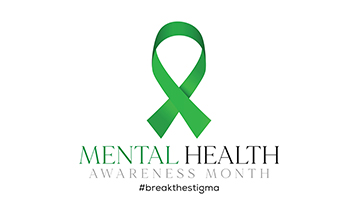Breaking the stigma of mental illness.
By Sandra Bolan
When a person tells a friend, co-worker or boss, “I suffer from a mental illness,” the reactions can range anywhere from acceptance and wanting to help, to that person being shunned.
Tell those same people you suffer from cancer or diabetes, and the amount of support offered can be overwhelming.
The Americans with Disabilities Act does not discriminate between mental health and physical disabilities, so why should we?
But society does.
However, it’s not just “normal” people who can discriminate or stigmatize a person who suffers from mental health issues. Those who have depression, anxiety, ADHD or PTSD, to name a few, also stigmatize themselves.
Some may tell themselves, “I can get over this,” “I did this to myself,” “It’s my fault” or “It’s just a phase.”
The first step in dealing with a mental health problem is admitting you have one.
That is no easy task. The average delay between the onset of mental illness symptoms and treatment is 11 years, according to the National Alliance on Mental Illness (NAMI).
It’s a harsh reality, but if you want society’s attitudes to change toward mental illness, you have to start with yourself and accepting that yes, there is a problem, no it’s not my fault and this can be treated.
Breaking the Stigma
Name the dragon. Think of your battle with mental illness as more than its clinical name. Turn depression into Drizella, or anxiety into The Grand Witch. By naming it you take away its power.
Talk about it. May is Mental Health Awareness month. Take the opportunity to be vocal about your mental health. You don’t have to get atop a soapbox and shout it out to the world that you suffer from mental illness – unless you really want to – but don’t be afraid to talk about it – to anybody. Talking about mental health helps diffuse the societal stereotype of what a person suffering from a mental illness looks like. Most people who suffer with a mental illness look like everybody else.

Encourage equality between physical and mental health. No one would think twice about ridiculing a person for visiting the doctor because they have diabetes. Why then should a person going to a therapist to treat anxiety be thought of any differently?
Words hurt. People who suffer from a mental illness often use harsh verbiage to describe themselves. They call themselves crazy, insane, nuts, kookoo or out to lunch. This verbiage does nothing to help reduce the stigma society puts upon a mental health sufferer. You are not your disease. Everyone is a person, not a label, therefore, a better descriptor is, “I am bipolar,” “I suffer from depression” or, “I live with anxiety.”
Educate yourself and others. Knowledge is power and people tend to be afraid of what they don’t understand. That includes people who do and don’t suffer from a mental illness. For those who do have a mental illness, that means seeking out treatment. Find out from experts who specialize in treating mental health issues – don’t guess or use WebMD – to diagnosis and treat. For people living with a person who suffers from a mental ailment, do your research, visit a treatment center and ask the professionals questions. Seek out your own therapist to find out how best to support your family member. WGW




